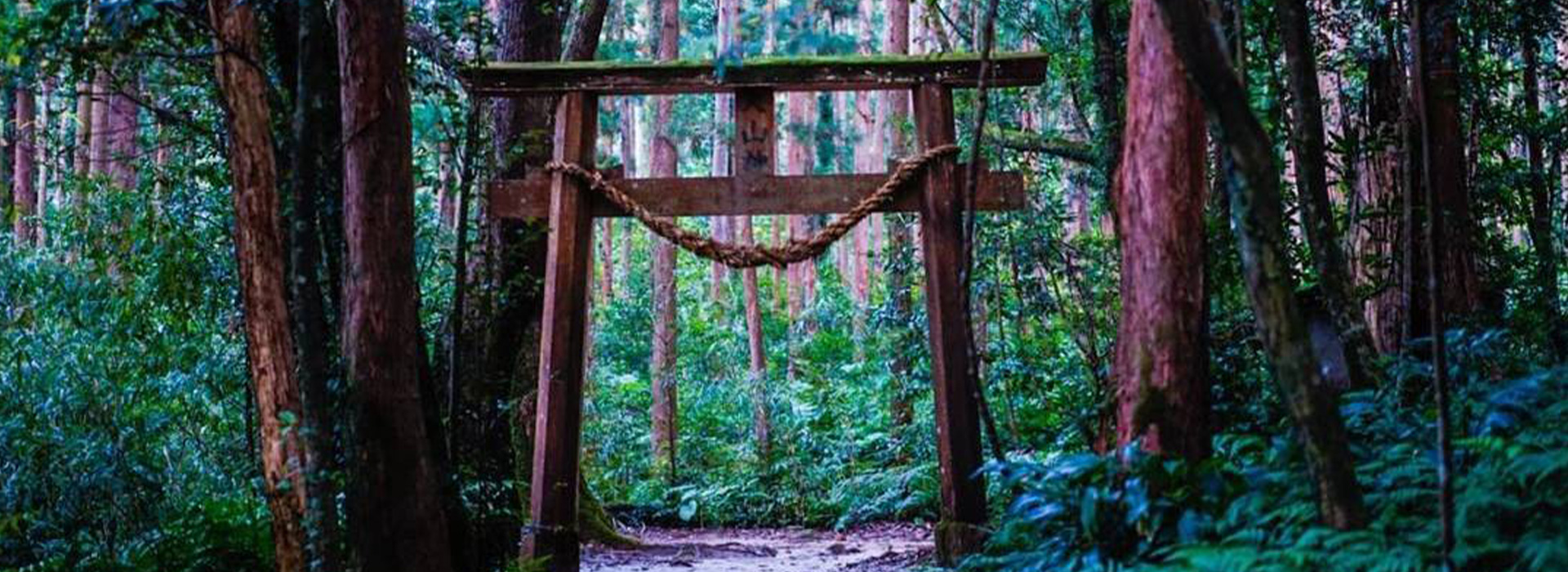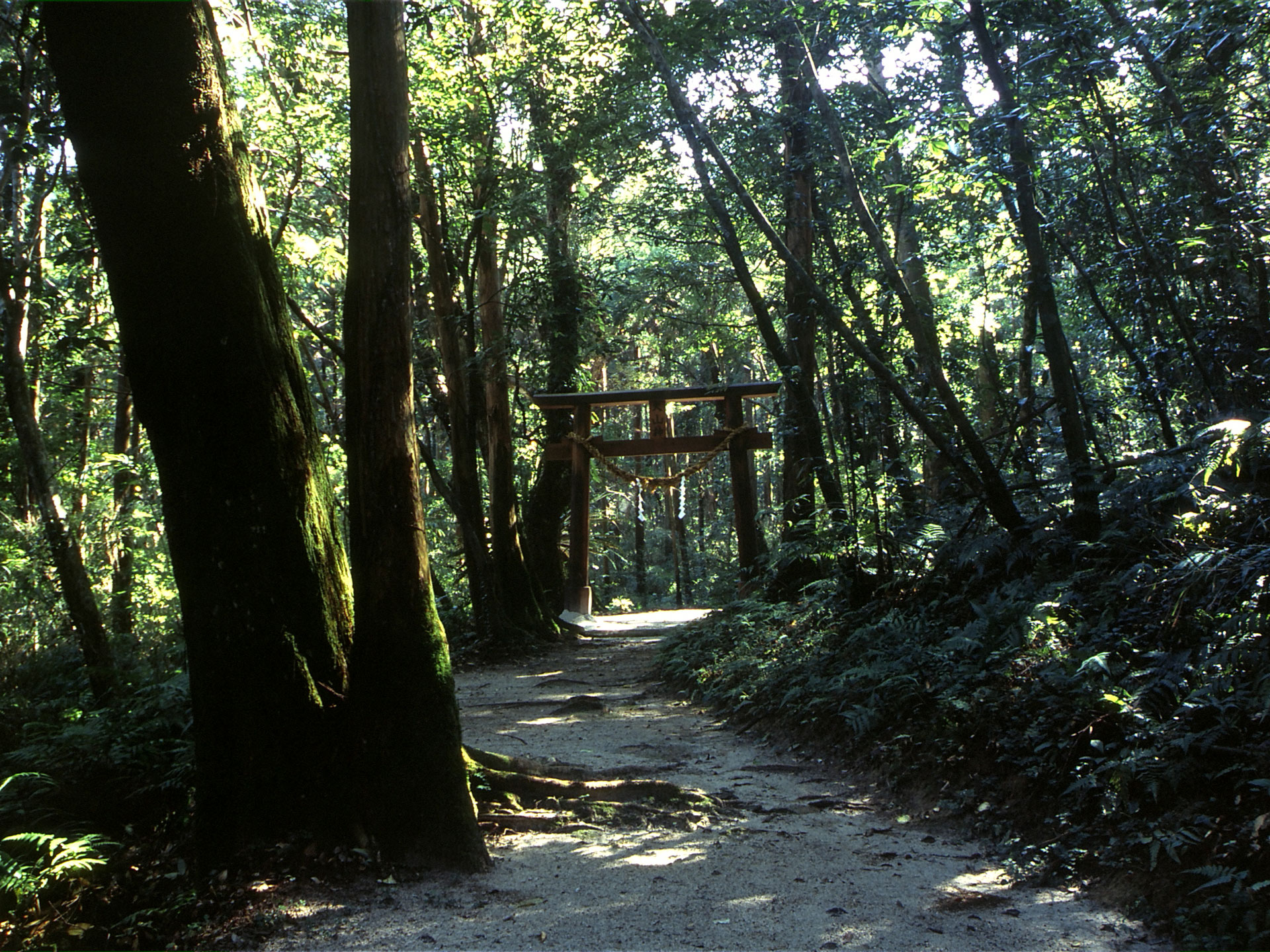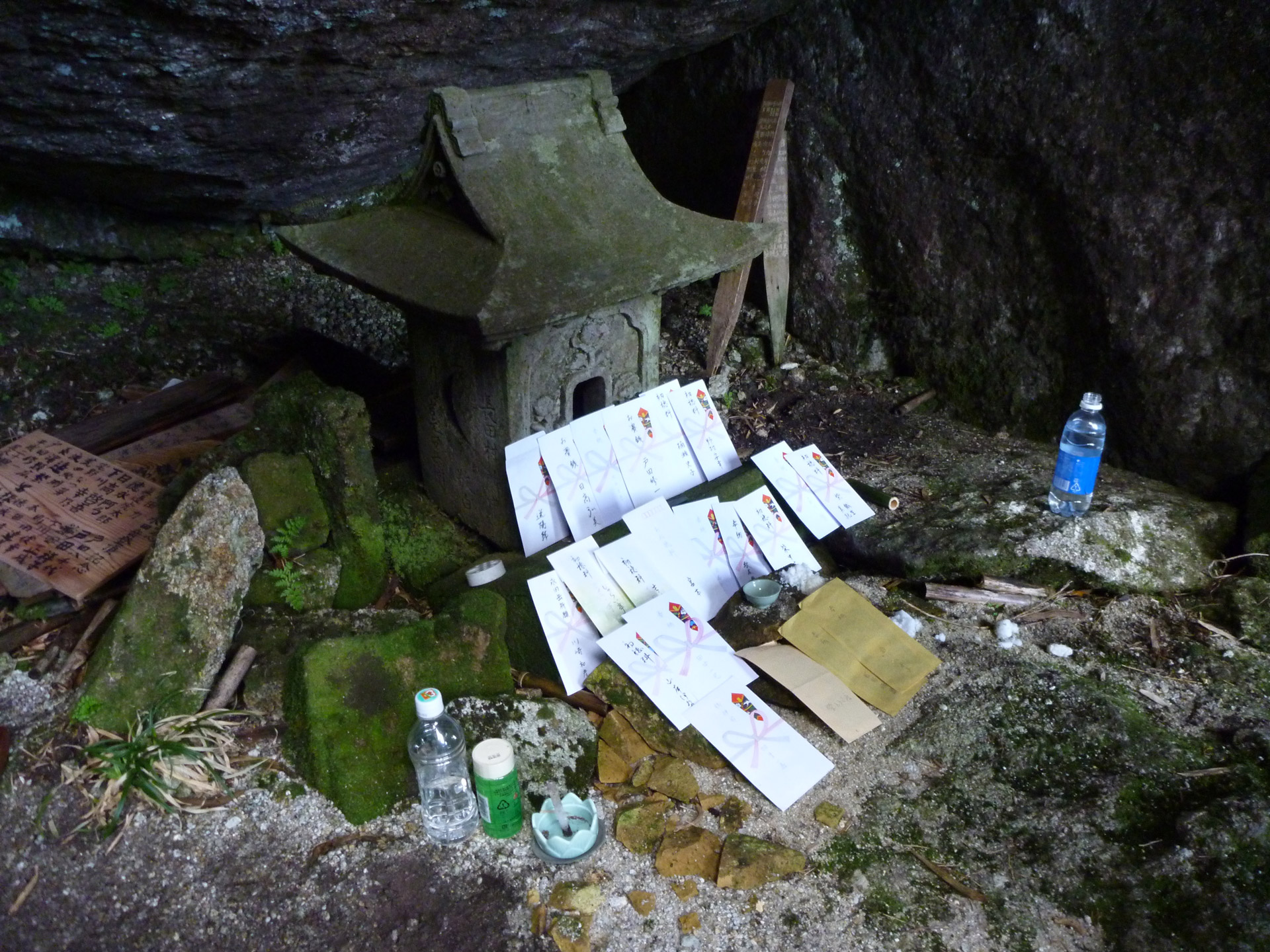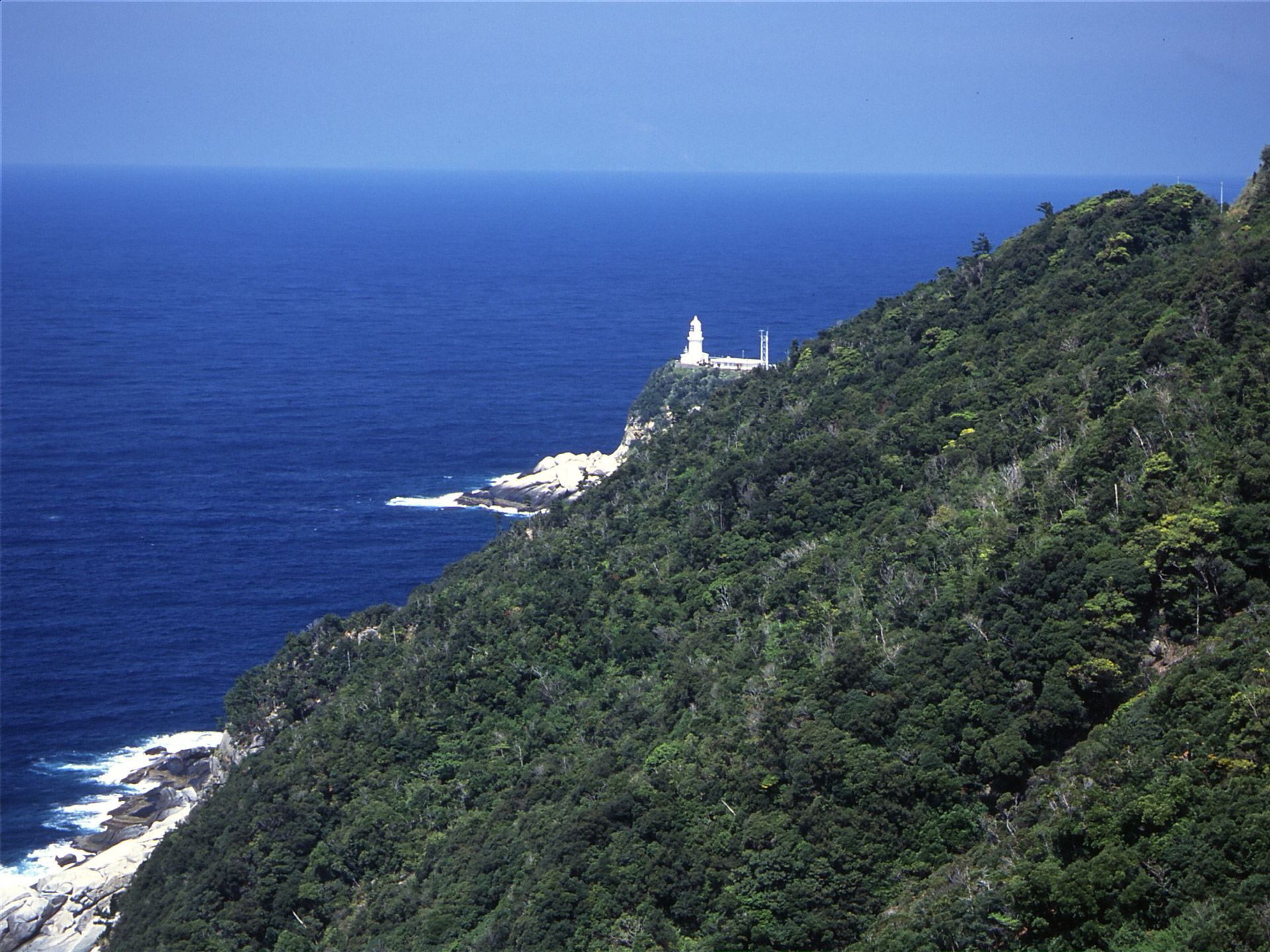Ushidoko Pilgrimage Site(Ushidokomoisho)
A place where men who came to the mountain to pay homage to the mountain worshippers were welcomed.

Yakushima was registered in 1980 and extended as Yakushima and Kuchinoerabu Jima in March 2016.
Based on the Yakushima Charter decided in 1993, we are working to create a community where people and nature coexist in harmony.
A wide variety of eco-tours, including mountain climbing, canoeing, and scuba diving, are offered in the pristine natural environment. We also operate a Yakushima certified guide system to promote safe and fulfilling eco-tours.
In addition to Shiratani-unsui Gorge and Yakusugiland, which have Yakusugi forests over 3,000 years old, there are environmental learning facilities such as Yakusugi Museum, Yakushima Environmental and Cultural Foundation, and Yakushima World Heritage Conservation Center.
Almost 100% of the electricity consumed on Yakushima is provided by hydroelectric power generation using abundant water, and the use of electricity does not produce carbon dioxide, making it an earth-friendly region.
On Kuchinoerabu Jima, after the eruption of Mt.Shindake in May 2015, we are working to restore local activities, including the production of gajuts, shochu potatoes, and beef cattle, and eco-tours in the rich coral communities of the sea.
Extended registration as a Biosphere Reserve (Yakushima/Kuchierabujima UNESCO Eco-Park).
The Yakushima-Kuchierabujima Biosphere Reserve consists of the entire area of Yakushima and Kuchierabujima in Kagoshima Prefecture and the coastal waters. The core and buffer areas, which include World Natural Heritage areas, are being appropriately protected and preserved, and the islanders live in harmony with the sea, villages, Mae-dake and Okudake, where people are deeply connected with rich nature.
Yakushima was the first in Japan to be registered as a World Natural Heritage site. Kuchierabujima is a volcanic island with a unique gourd-shaped volcanic landscape located about 12 km west-northwest of Yakushima.

A place where men who came to the mountain to pay homage to the mountain worshippers were welcomed.

The participants offer salt, rice, sea sand, and sacred wine at the mountain shrine dedicated to the deity Ipponhoujudaigongen, and offer a prayer of mourning and mourning.

The people of Yakushima live a life deeply connected to the richness of nature and people.